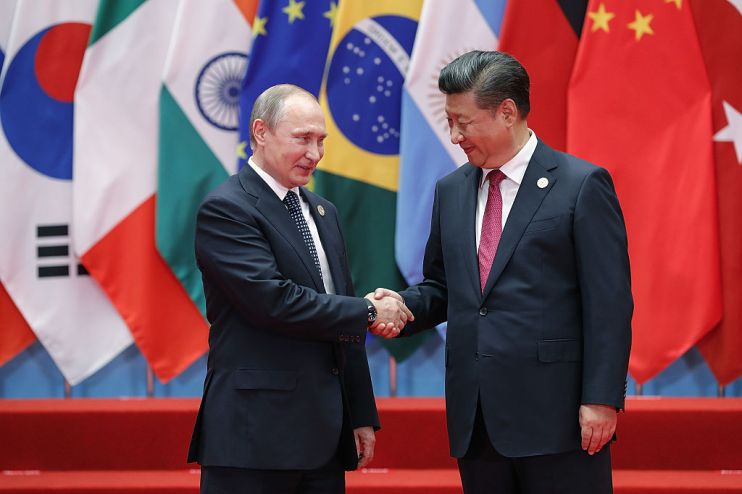UK says Russia is its ‘most acute threat’ as China tensions dialled down

The UK government has today warned that Russia is its “most acute threat”, while also potentially extending an olive branch to China after escalating tensions over the past year.
The government’s long-awaited integrated review of defence, foreign and development policy outlined a plan to pivot away from Europe and toward the Indo-Pacific in a landmark change of strategy.
The review said the UK should expect Russia to be “more active around the wider European neighbourhood” over the next decade and that “until relations with its government improve, we will actively deter and defend against the full spectrum of threats emanating from Russia”.
The approach to China appears more to be more conciliatory, with the review only calling the country a “systemic challenge”.
The review said the UK “will invest in enhanced China facing capabilities”, while adding that “open, trading economies like the UK will need to engage with China and remain open to Chinese trade and investment”.
Before the Open newsletter: Start your day with the City View podcast and key market data
“We will continue to pursue a positive economic relationship, including deeper trade links and more Chinese investment in the UK,” the review said.
“At the same time, we will increase protection of our [Critical National Infrastructure], institutions and sensitive technology, and strengthen the resilience of our critical supply chains, so that we can engage with confidence.”
It comes after the UK escalated tensions with China over its range of human rights abuses, such as its ethnic cleansing of Uyghur Muslims in Xinjiang and democracy crackdown in Hong Kong, over the past year.
Foreign secretary Dominic Raab has said on numerous occasions that Beijing broke the Sino-British treaty that governed the handover of Hong Kong by imposing draconian new security legislation in the region.
The new legislation makes it illegal to criticise the ruling Chinese Communist Party and was a springboard to further erode democratic norms in Hong Kong.
The UK offered visas to millions of Hong Kongers to leave the region.
Sanctions have also been placed on China for its treatment of Uyghur Muslims in the country’s north, which the US has branded as genocide.
Equipment from Chinese telecoms giant Huawei was also banned last year from being used in the UK’s 5G infrastructure through fears it would be used by Beijing to conduct spying operations – a charge Huawei denies.
The review said the UK would continue to stand up for western values when dealing with China.
“We will require a robust diplomatic framework for this relationship that allows us to manage disagreements, defend our values and preserve space for cooperation where our interests align,” it said.
“China is an increasingly important partner in tackling global challenges like pandemic preparedness, biodiversity and climate change.”
Intelligence and Security committee chair, and Tory MP, Julian Lewis asked Johnson if the reviews China stance “demonstrate that the grasping naivety of the Cameron-Osborne years still lingers on in some departments of state?”
Johnson said that the UK has “a balance to strike and we need to have a clear eyed relationship with China”.
“Those who call for an new Cold War on China or for us to sequester our economy entirely from China, which seems to be the new policy of the opposition weaving as they generally do from one position to the next, are I think mistaken,” he said.